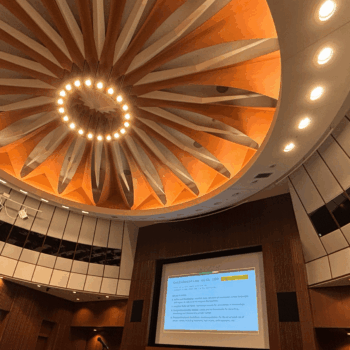Overcoming crises with a smile
The strategic use of humour in corporate apologies
In the last decades, the number of critical situations and potential threats to which organizations are exposed have exponentially increased. This is also due to the advent of social media, which has empowered users with the possibility of sharing their thoughts and opinions with thousands, if not millions, of people, regardless of their truthfulness or the impact these can have on firms. Indeed, today more than ever before, companies’ misbehaviours and wrongdoings are being exposed online.
For this reason, the importance placed on crisis management and crisis communication has grown. The fundamental role that crisis communication plays in a critical situation can be understood if we consider the fact that the main threat a critical situation poses to a firm is to damage its reputation, which is the result of decades of hard work and substantial resource investment. Since communication is at the basis of building the corporate reputation, we can also state that it is at the basis of safeguarding and, when needed, rebuilding such reputation.
In crisis communication, corporate apologies play a central role. For an organization, apologizing is necessary to offset the negative consequences of a crisis. Indeed, they are fundamental tools to restore the reputation of the organization involved in the critical event and earn back stakeholders’ trust, by decreasing the adverse feelings towards the firm, as well as diminishing the punishment, and re-engaging the audience.
Because of organization’s need to connect with their audiences by adopting a communication style that speaks to them, many companies have started to feature a humorous component in their communications. Indeed, even if humour has always been known and used by individuals, recently it has become a much more pervasive aspect of our everyday life, characterising both the private and professional sphere.
Therefore, the present thesis aims at uncovering whether humour and its benefits can be leveraged by companies in their corporate apologies and what is the public’s perception of humorous apologies.
In particular, the analysis of three case studies will be useful to highlight the main benefits companies have witnessed after including a humorous nuance in their apologies, as well as the potential risks, creating a connection with the theory and delimitating how it applies to real-world scenarios.
The first case analysed is KFC’s “FCK” apology, which will demonstrate how humour can help fostering forgiveness through the creation of positive emotions and associations with the firm, as well as how humour can humanise the organization and add relevance to its communications, by aligning with the communication style of its audience. The second case involves Three UK and its “Holiday Spam” apology, which will highlight humour’s ability to strengthen the connection with the company’s public by smiling together about everyday situations. Moreover, this case will also show that adding a humorous touch to a firm’s apology can increase the relevance and the reach of an organization’s communications. Lastly, Ryanair’s apology after having issued 190 unsigned checks will demonstrate the need to evaluate the context in which the humorous apology is issued, as well as the necessity to have a clear strategy in mind when using humour.
- On 25 Luglio 2025



